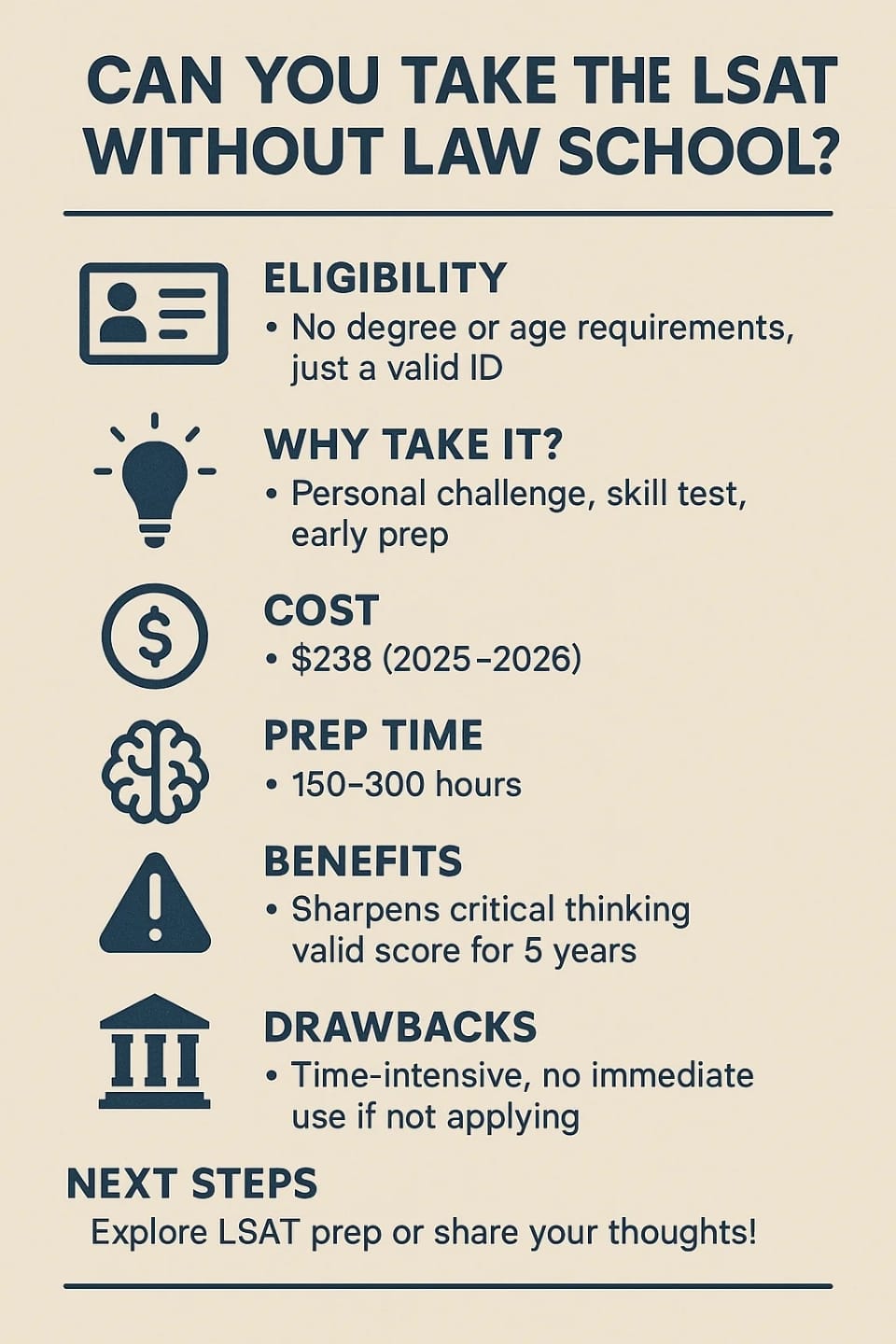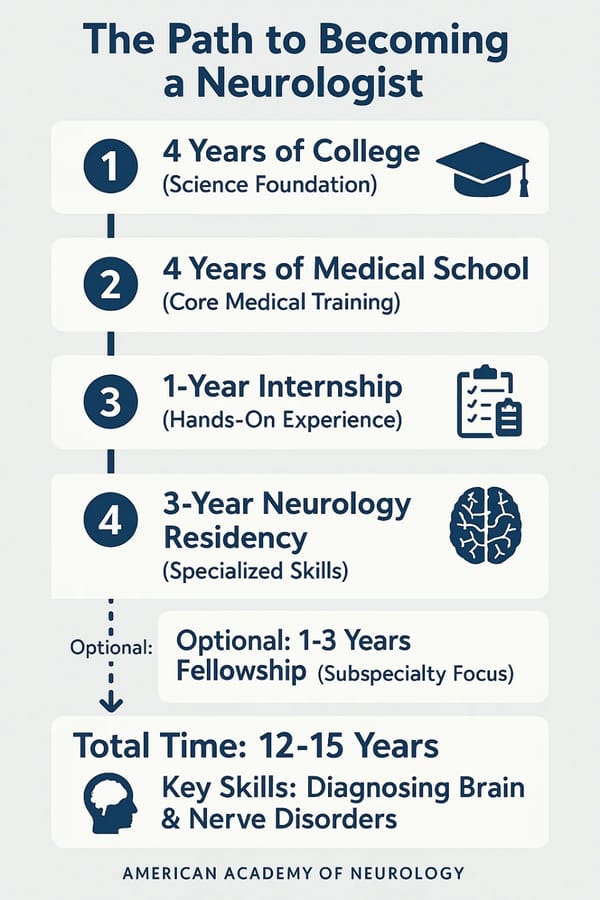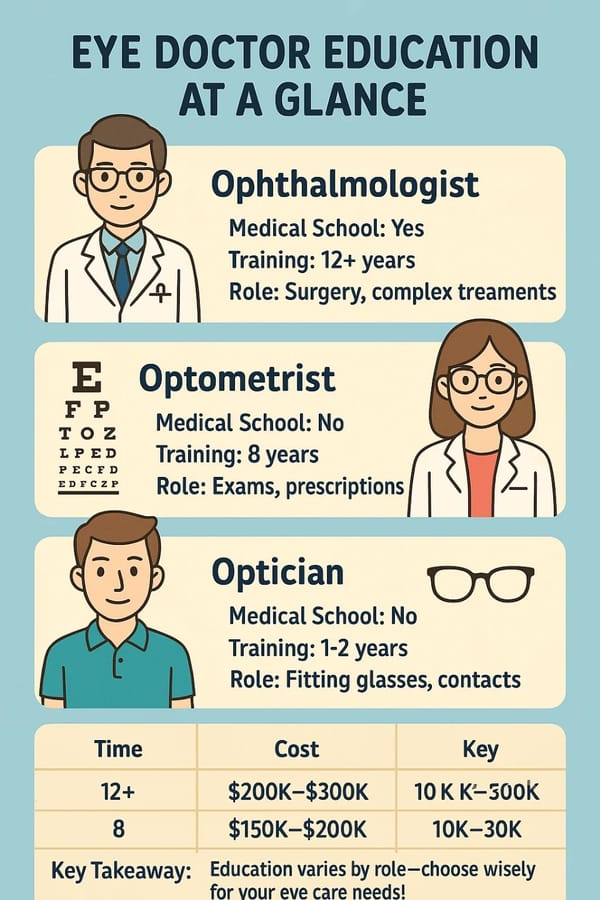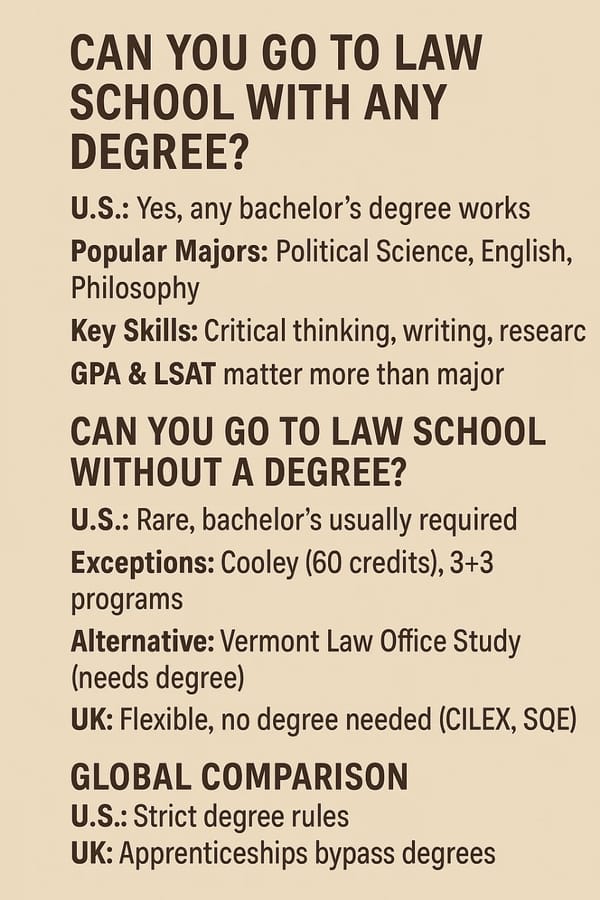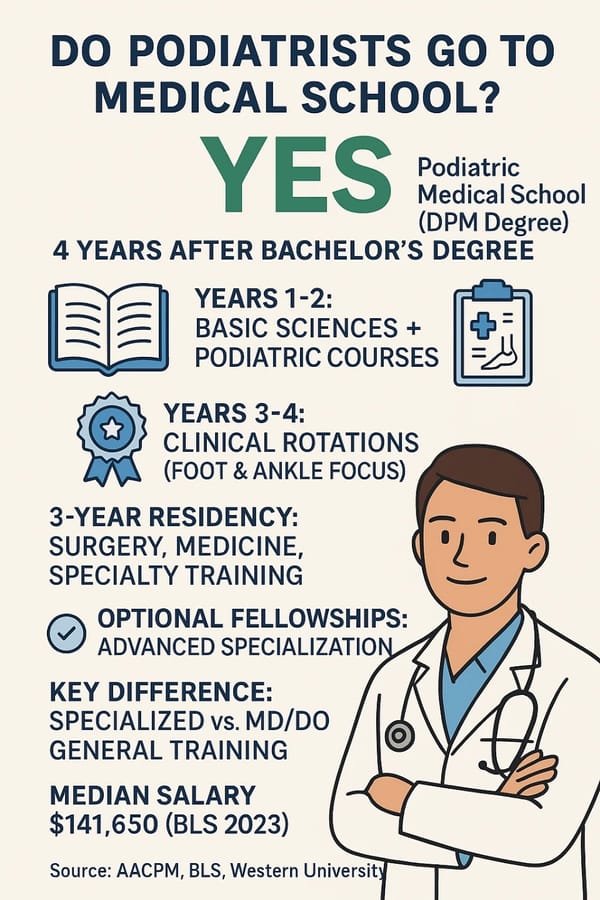Have you ever wondered if you could take one of the most challenging exams in the world, even if you don't plan to use it? The Law School Admission Test (LSAT) carries a certain mystique, known for its rigorous assessment of critical thinking and analytical skills. But is it strictly for aspiring lawyers? Let's explore the intriguing question: Can you take the LSAT without going to law school?
Key Points
- Research suggests you can take the LSAT without planning to attend law school, as there are no strict educational or age requirements.
- It seems likely that people take it for personal challenge, skill assessment, or curiosity, even without applying to law school.
- The evidence leans toward a cost of $238 for 2025-2026, with preparation requiring 150-300 hours, which might be significant if not pursuing law.
Can You Take the LSAT Without Going to Law School?
Overview
Yes, you can take the LSAT without intending to go to law school. The Law School Admission Test (LSAT), administered by the Law School Admission Council (LSAC), has no specific requirements like needing a degree or being enrolled in law school, making it accessible for anyone with a valid ID, over 18, and not banned by LSAC.
Why Would You Do This?
People might take the LSAT for reasons beyond law school applications, such as testing their critical thinking skills, preparing early for a future application (scores are valid for five years), or helping others prepare. It can also be a personal challenge, especially given its reputation as a tough exam, costing $238 for 2025-2026 and requiring significant study time.
Unexpected Detail: Preparation Investment
Even without law school plans, preparing for the LSAT can take 150-300 hours, which is a big commitment. Options range from free practice tests to courses costing up to $2,499, which might surprise those not expecting such an investment for personal growth.
Survey Note: Comprehensive Analysis on Taking the LSAT Without Law School Plans
This detailed analysis explores whether you can take the LSAT without planning to attend law school, delving into eligibility, reasons, preparation, costs, benefits, and alternatives. It aims to provide a thorough understanding for anyone curious about the LSAT, whether a recent graduate, career changer, or intellectually curious individual, as of April 3, 2025.
Understanding the LSAT and Its Purpose
The LSAT is a standardized test designed to assess skills crucial for law school success, such as analytical reasoning, logical reasoning, and reading comprehension. Administered by LSAC, it's integral for law school admissions in the U.S., Canada, and other countries. Starting August 2024, it includes two scored Logical Reasoning sections, one scored Reading Comprehension section, and an unscored variable section, typically taken digitally at test centers or remotely, as outlined on the LSAC website (Take the LSAT).
Typically, LSAT test-takers are prospective law students, often with a bachelor's degree, aiming to strengthen their applications. However, research suggests it's not limited to this group, opening possibilities for others.
Eligibility and Accessibility
Research indicates you can take the LSAT without planning to attend law school, with no strict educational or age requirements. Blueprint Prep confirms, "Anyone can take the LSAT!" with no prerequisites, and TestPrepInsight echoes this, noting no specific educational background is needed, though most test-takers have a bachelor's degree. The only restrictions are if you're banned by LSAC, under 18, or lack a valid government-issued ID, as per TestPrepInsight (Can Anyone Take The LSAT?).
This openness means it's accessible for personal challenge or curiosity, not just law school applications, aligning with LSAC's focus on assessing skills without formal barriers, as seen on their site (LSAT).
Reasons to Take the LSAT Without Law School Plans
Why would someone take the LSAT without intending to apply? Several reasons emerge from research:
- Personal Challenge: It tests critical thinking and analytical skills, appealing to those who enjoy puzzles or debate. Blueprint Prep notes backgrounds in philosophy or debate might find Logical Reasoning intuitive, making it a mental exercise (Can Anyone Take the LSAT?).
- Skill Assessment: It can help gauge readiness for legal reasoning, informing future career decisions, especially for those considering law later.
- Helping Others: If tutoring or advising someone for law school, taking it can provide insight into the process.
- Early Preparation: Scores are valid for five years, so taking it early, even unsure about law school, is low-risk, as Blueprint Prep suggests (Can Anyone Take the LSAT?).
- Curiosity: Given its reputation as one of the world's toughest exams, some might take it out of curiosity, despite costs and difficulty, as Juris Education notes, with a 2025-2026 fee of $238 (Law Schools That Don't Require the LSAT).
These reasons highlight its utility beyond applications, offering personal growth or skill development.
Preparation: Costs and Resources
Preparing for the LSAT, even without law school plans, requires investment. The registration fee is $238 for 2025-2026, with LSAC offering fee waivers for those demonstrating extreme need, applicable via your LSAC account, as detailed on Kaplan's site (LSAT). Retakes cost the same, which might be a consideration for non-applicants.
Study resources vary, with Kaplan providing options:
| Resource | Cost | Features |
| Free Practice Test | $0 | One full-length test, good for assessing needs |
| Self-Paced Course | From $899 | 80+ hours LSAT Channel, 55+ practice tests, 4/6/12 months access |
| Live Online Course | Varies | 24 hours live lessons, same practice materials, flexible scheduling |
| Tutoring + Live Online | From $2,499 | 10-40 hours 1-on-1, includes course, score guarantee or money back |
| Build Your Own | From $49 | Self-study tools, customizable |
Recommended study time is 150-300 hours, or 20-25 hours weekly over 2-3 months, per Kaplan (LSAT Prep Options). This commitment, while significant, can sharpen skills useful in various careers, like consulting or policy analysis.
Benefits and Drawbacks
Taking the LSAT without law school plans has benefits and drawbacks:
- Benefits: It hones critical thinking, useful beyond law, and a high score (160+ is good, top 25% is 159-163, per Kaplan) can boost confidence or support future applications. It's also a personal achievement, testing against a tough standard (LSAT Score Predictor).
- Drawbacks: The cost and time (months of study) might not align with goals if not applying. The pressure of a high-stakes test can be stressful without clear purpose, and a low score might discourage, though it's just one measure, as Juris Education notes the exam's difficulty (Law Schools That Don't Require the LSAT).
Weighing these, it's a personal decision based on goals and resources.
Alternatives to the LSAT for Context
While the focus is taking the LSAT without plans, alternatives like the GRE are relevant for context. Over 100 law schools in 2025 accept GRE, including Harvard and Arizona, per Princeton Review, with schools like Georgetown allowing GRE or GMAT (Which Law Schools Accept GRE Scores?). However, for those not applying, this is less pertinent, but knowing options can inform decisions.
**Conclusion
